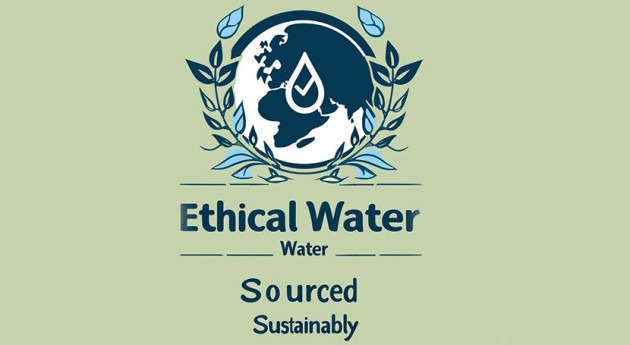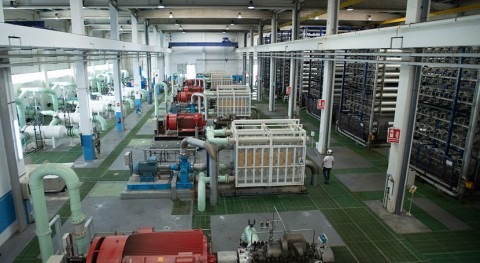Water is an essential resource, fundamental to life and integral to numerous industries. However, its management often lacks a holistic approach, leading to sustainability challenges, inequitable distribution, and environmental degradation. The concept of Ethical Water introduces a comprehensive framework that addresses these issues, ensuring water is sourced, managed, and distributed sustainably, equitably, and responsibly. This article explores the significance of applying an Ethical Water stamp to every product, encouraging consumer-driven pressure on companies to adopt best practices for their water footprint and mitigate their water risks.
Historically, water management has often been short-sighted, focusing on immediate needs rather than long-term sustainability. Notable examples include the over-extraction of water resources in the Aral Sea and the ongoing depletion of the Colorado River. These cases highlight the dire consequences of unsustainable water practices, underscoring the need for a paradigm shift towards Ethical Water.
Water scarcity and pollution are pressing global issues. According to the United Nations, approximately 2.2 billion people lack access to safely managed drinking water services, and over 4 billion people experience severe water scarcity at least one month per year. These statistics illustrate the urgency of adopting sustainable water management practices worldwide.
The Concept of Ethical Water
Ethical Water is an approach to water management that encompasses environmental sustainability, social equity, economic fairness, and corporate responsibility. It promotes the idea that water should be used in a way that does not compromise the ability of future generations to meet their needs. Key components of Ethical Water include:
- Sustainable Sourcing: Ensuring water is sourced from renewable and non-depleting sources, preserving the ecosystem and biodiversity.
- Equitable Distribution: Providing fair access to clean water for all communities, particularly the marginalized and underserved.
- Environmental Protection: Implementing measures to prevent pollution, conserve water, and maintain water quality.
- Corporate Responsibility: Encouraging businesses to adopt transparent water management practices and engage in community involvement.
The Ethical Water Stamp: A Symbol of Responsibility
An Ethical Water stamp on products serves as a visible commitment to responsible water use. Similar to eco-labels for sustainable products, this stamp would signify that a product has been manufactured using ethical water practices. This not only informs consumers but also incentivizes companies to adopt and maintain high standards of water stewardship.
Socioeconomic Impacts of Water Use in Product Life Cycles
Water is a crucial component in the production and transportation of goods, affecting local ecosystems and communities. The socioeconomic impacts of water use include:
- Production Locations: The water footprint of a product varies based on where it is produced. Regions with abundant water resources might experience less immediate pressure, whereas areas with scarce water supplies can face significant stress. Over-extraction in water-scarce regions can lead to depleted aquifers, reduced water quality, and long-term ecological damage.
- Local Ecosystems and Communities: Water-intensive production processes can adversely impact local ecosystems and communities. For example, diverting water for industrial use can reduce the availability of water for agriculture and drinking, affecting local food security and health. This often disproportionately affects marginalized and underserved communities.
- Shipping and Global Trade: Transporting goods involves a hidden water cost. Products shipped globally carry an embedded water footprint, reflecting the water used in their production and transport. This often involves transferring water resources from water-rich to water-poor regions, exacerbating local water scarcity issues. Additionally, the environmental impact of shipping, including pollution and greenhouse gas emissions, further strains global water resources.
Technological Innovations
Advancements in technology play a crucial role in reducing water footprints. Innovations such as precision irrigation systems, water recycling and reuse technologies, and advanced desalination methods offer promising solutions. For instance, closed-loop water systems in manufacturing can drastically cut water usage and waste.
Policy and Regulatory Frameworks
Government policies and international regulations are pivotal in promoting ethical water use. Successful policies, such as the European Union’s Water Framework Directive, set standards for water quality and sustainable management. However, enforcement remains a challenge, requiring concerted efforts from all stakeholders to ensure compliance.
Consumer Influence and Corporate Responsibility
Consumers wield significant power in shaping market trends and corporate behaviors. By choosing products with the Ethical Water stamp, consumers can drive demand for ethically produced goods, compelling companies to prioritize sustainable water management. This consumer-driven approach can lead to:
- Increased Transparency: Companies will need to disclose their water usage and management practices, leading to greater accountability.
- Enhanced Brand Loyalty: Brands that demonstrate a commitment to ethical water practices can build stronger relationships with environmentally conscious consumers.
- Market Differentiation: The Ethical Water stamp can serve as a unique selling point, differentiating products in a competitive market.
Mitigating Water Risks
Water risks, including scarcity, pollution, and regulatory pressures, pose significant challenges for industries. Adopting ethical water practices can help mitigate these risks, offering several benefits:
- Operational Continuity: Sustainable water management ensures a reliable supply of water, reducing the risk of operational disruptions due to water shortages.
- Regulatory Compliance: Companies adhering to ethical water standards are more likely to comply with existing and emerging water regulations, avoiding potential fines and sanctions.
- Reputation Management: Demonstrating a commitment to ethical water use can enhance a company's reputation, attracting investors and stakeholders who prioritize sustainability.
The Role of Investors
Investors are increasingly recognizing the importance of sustainability in assessing company performance. Companies that adopt ethical water practices can attract investment by demonstrating their commitment to environmental, social, and governance (ESG) criteria. Ethical water management can lead to:
- Long-Term Value Creation: Sustainable practices can enhance operational efficiency and resilience, contributing to long-term profitability.
- Risk Reduction: Addressing water risks proactively can mitigate potential financial losses associated with water-related issues.
- Positive Impact: Investors can support companies that prioritize ethical water use, contributing to broader environmental and social goals.
Future Outlook and Call to Action
The future of water management lies in embracing ethical principles that prioritize sustainability, equity, and responsibility. Applying an Ethical Water stamp to products can drive consumer demand for ethically produced goods, encouraging companies to adopt best practices for their water footprint and mitigate water risks. This approach benefits not only the environment and society but also companies and their investors, fostering a more sustainable and resilient future.
By embracing Ethical Water, we can ensure that water is managed wisely and equitably, securing this precious resource for generations to come. Let’s make Ethical Water a cornerstone of our water management strategies and a symbol of our commitment to a sustainable future.
The concept of Ethical Water provides a comprehensive framework for responsible water management, emphasizing sustainability, equity, and corporate responsibility. Applying an Ethical Water stamp to products can drive consumer demand for ethically produced goods, encouraging companies to adopt best practices for their water footprint and mitigate water risks. This approach benefits not only the environment and society but also companies and their investors, fostering a more sustainable and resilient future.







